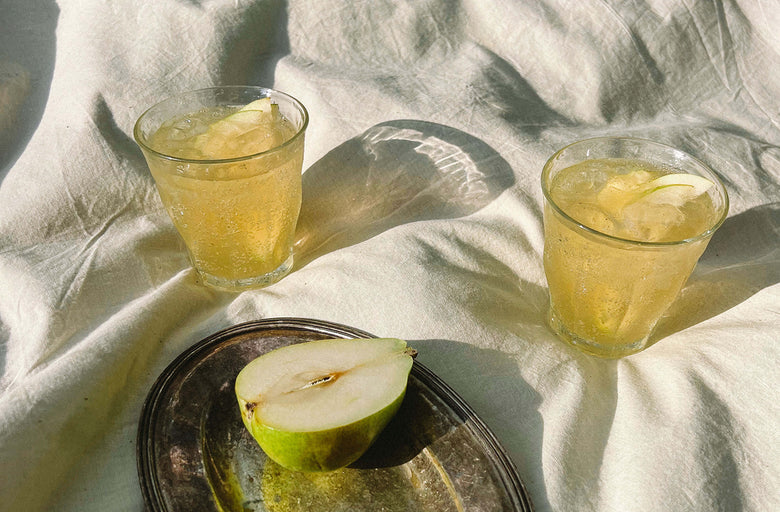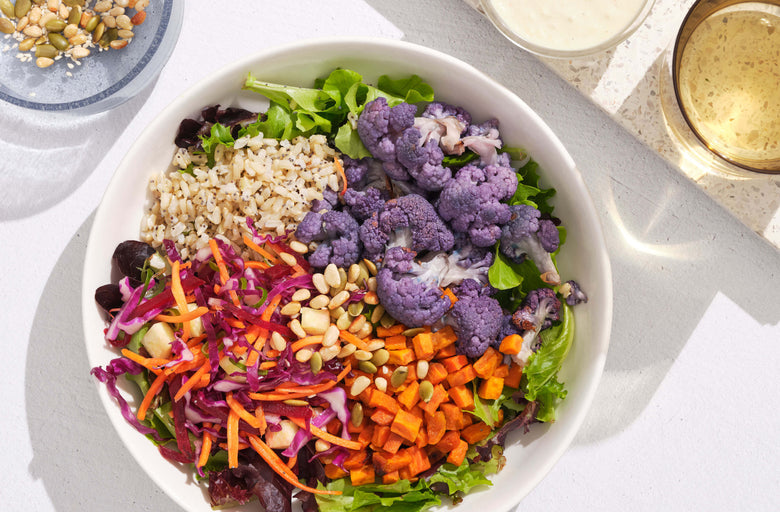Stress is a palpable energy, a force that manifests itself in many ways. To quell its emotional effects, you can move through it, exhale it out, or cook to shift focus. It can also impact physical health, especially digestion: you may even be familiar with its pendulum swing of appetite loss to an insatiable craving for sugar or refined carbohydrates. We get it. Instead of getting whisked away by worry and leaning on sugar to solve it, there is in fact, a nutritive solution. It’s a one-two punch to support the microbiome, aid in natural detoxification, and squash cravings. Below, your two-part plan:
Reach for Bitters
Research indicates that bitter foods have the opposite effect on the body’s meridians as sugary foods because they stabilize your hunger hormones—leptin and ghrelin—and even out blood sugar. Bitter foods also stimulate the liver to produce bile, a critical step in digestion, enabling stronger nutrient absorption.
When you take a bite of a bitter food—think dill, radishes, or even your black coffee— it stimulates the taste receptors in the mouth, while also activating enzyme production or the juices that help break down food. Bile assists in breaking down fats and serves an important role in absorbing vitamins A (immunity and reproductive health support), D (important for intestinal health, cognitive function, and fighting off pathogens), E (a powerful antioxidant that inhibits free radicals and UV damage) and K (a protector of blood and bone health). When our systems are more efficient with nutrients, our body heightens its ability to innately balance, detox, and metabolize. Some of our favorite plants that bring the benefits of bitter are turmeric and gentian; the galangal root, which we brew up in a soup for the advanced Level II cleanse; parsley, arugula, orange pith, chicory, and dandelion greens—raw cacao counts too.
Simple Recipes that Celebrate the Bitter Taste
Burdock and Dandelion Herbal Infusion
Love Your Gut
A diet of diverse plants, including the full spectrum of flavor profiles, creates a strong foundation for nixing sugar cravings. From there, provide ample support to the gut-brain axis. The connection from the brain to the microbiome is a two-way street, meaning one informs the other. Mental strain or stress can disrupt the gut’s delicate ecosystem just as a mismanaged gut greatly affects mood and even cognitive function. One method to clear away the stress-related noise, and prevent yeast and sugar-favoring microbes, is through the introduction of enzyme supplements. Systemic enzymes like protease work to reduce inflammation and inhibit Candida overgrowth, while the digestive enzyme, chitosanase breaks down chitin, a part of Candida’s cell wall. Together, they serve as powerful allies to combat the negative effects that high amounts of sugar have on the GI tract. Though the body’s innate response when eating bitter foods is to activate these enzymes in the stomach and system-wide, chronic stress can weaken the function—which is why support might be necessary. Look out for a high quality supplement, ideally paired with probiotic strains and prebiotic fiber to approach healing from multiple angles.
Dive Deeper on Stress, Sugar, and Gut Health:






